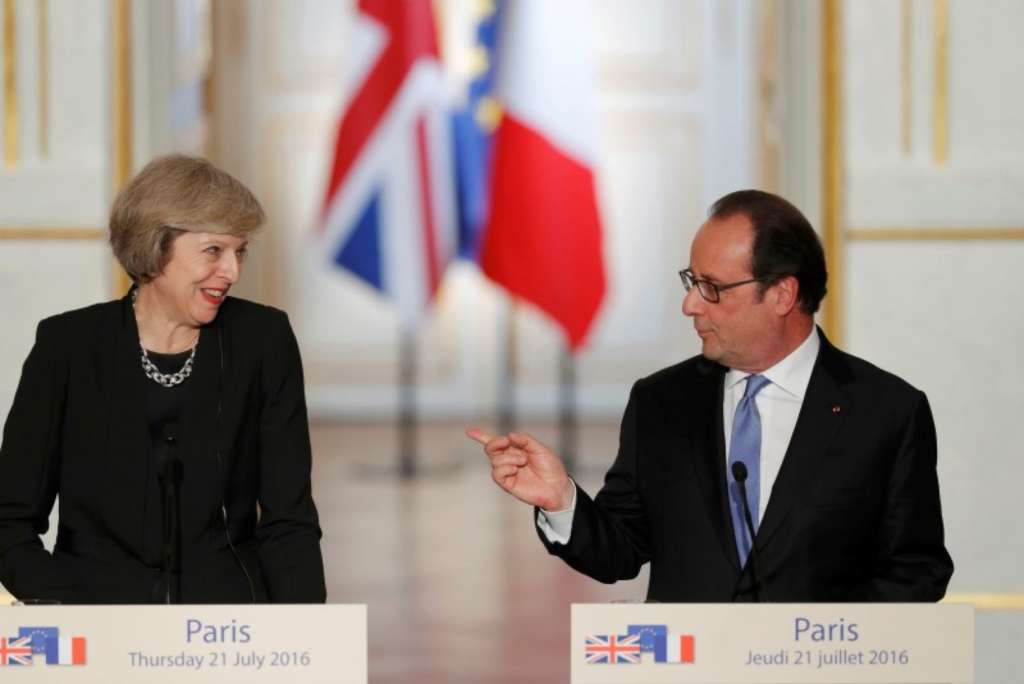London-Prime Minister Theresa May returned to London on Friday after a European tour that took her to two of the most economically powerful members of the European Union.
May’s visit to Germany and France was successful, British media reported.
The new prime minister was able to convince Berlin and Paris on the importance of slowing down Britain’s exit from the EU.
May who replaced PM David Cameron after his resignation following the Brexit referendum on June 23, convinced German Chancellor Angela Merkel and French President Francois Hollande not to pressure London into triggering Article 50 of the EU’s Lisbon Treaty for long.
Britain has repeatedly said that it would not trigger the article, which would facilitate its exit from the 28-member EU, before the end of the year.
May also reiterated that she wanted to keep close ties with France, Germany and the rest of the EU members despite Britain’s decision to leave the union.
“I think it is sensible for us to ensure that the negotiations for Britain leaving the European Union are done in as calm and orderly and constructive a manner as possible and I think that does require some preparation to be made,” May said during a press conference with Hollande.
“I hope that we can all make the most of the next six months to prepare for these discussions in a constructive way so we maximize the opportunities for both the UK and the EU,” she said.
Hollande urged May to quickly come up with a negotiating stance for Britain’s departure from the EU but agreed she needed time to trigger the formal divorce.
Hollande also told May that Britain would have to choose between access to the single market and the free movement of people when it begins its negotiations on leaving the EU.
“It’s the most crucial point… Britain will have to choose: stay in the single market and accept free movement or have another status,” he said without elaborating on the latter option.
Hollande acknowledged that Britain would need time to prepare a negotiating position.
“There can be preparations for this negotiation,” he said.
“But I repeat. The sooner the better, it’s in the common interest, of Europe, the United Kingdom, and our economies,” he added.
